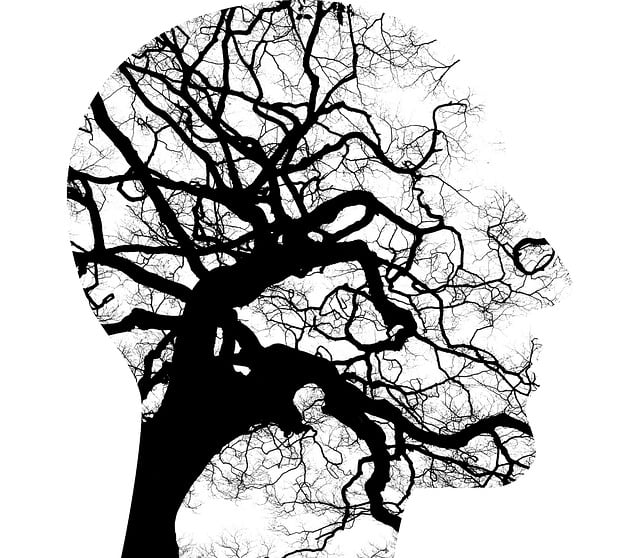In stress-prone Longmont, Colorado, Longmont Spiritual-Religious Issues Therapy offers workshops combining evidence-based practices with spiritual elements to enhance mental health. These programs teach stress management techniques like mindfulness and cognitive-behavioral therapy, tailored to healthcare providers' needs and diverse cultural beliefs. By focusing on both personal and professional resilience, these workshops aim to prevent burnout and improve overall well-being, reflecting the community's emphasis on spiritual and religious issues. Through interactive discussions and practical tools, participants gain effective coping strategies for navigating life challenges, fostering a compassionate and resilient community.
In today’s fast-paced world, stress management is paramount for overall well-being. This article explores effective strategies, focusing on the power of workshops as tools for personal growth and resilience. We delve into understanding stress and its profound impact, highlighting the significance of spiritual and religious practices in coping mechanisms. Subsequently, we provide a comprehensive guide to designing engaging workshops, using Longmont’s Spiritual-Religious Issues Therapy Workshops as a case study, offering valuable insights for organizations aiming to foster healthier communities.
- Understanding Stress and Its Impact on Well-being
- The Role of Spiritual and Religious Practices in Stress Management
- Designing Effective Stress Management Workshops
- Organizing and Facilitating Longmont's Spiritual-Religious Issues Therapy Workshops
Understanding Stress and Its Impact on Well-being

Stress is a complex response to various life situations, affecting our mental and physical well-being. It can stem from numerous sources, such as work pressures, personal relationships, or even chronic health conditions. In Longmont, where spiritual and religious issues are prominent, recognizing and understanding stress is the first step towards fostering positive thinking and improving overall mood management. The impact of prolonged stress can be severe, leading to both short-term and long-term health issues, including anxiety, depression, and physical ailments.
Workshops focused on stress management play a crucial role in providing individuals with tools to navigate these challenges. By participating in such programs, folks can learn effective strategies for trauma support services, enabling them to build resilience and enhance their coping mechanisms. These sessions often incorporate techniques like mindfulness, meditation, and cognitive-behavioural therapies, which have been proven to significantly reduce stress levels and promote a sense of calm.
The Role of Spiritual and Religious Practices in Stress Management

In today’s fast-paced world, many people are turning to spiritual and religious practices as a means of managing stress and cultivating mental wellness. Longmont Spiritual-Religious Issues Therapy offers workshops that explore how faith and spirituality can serve as powerful tools for coping with life’s challenges. These practices provide individuals with a sense of purpose, connection, and inner peace, which can be particularly beneficial in preventing burnout among healthcare providers—a demographic often exposed to high-stress environments.
Workshops focus on providing practical guidance, such as the transformative power of journaling and mindfulness exercises, tailored to the unique cultural competencies needed in healthcare settings. By integrating spiritual and religious perspectives into stress management strategies, participants gain enhanced tools for navigating life’s complexities. This holistic approach not only promotes individual well-being but also fosters a more compassionate and resilient healthcare workforce.
Designing Effective Stress Management Workshops

When designing effective stress management workshops in Longmont, Colorado, particularly focusing on spiritual-religious issues therapy, it’s crucial to integrate both theoretical knowledge and practical, actionable strategies. Participants should leave with a toolkit they can immediately employ to mitigate stress and enhance their mental health. Incorporate interactive activities like guided meditations, mindfulness exercises, and small group discussions led by trained facilitators from diverse backgrounds, including religious leaders and therapists specializing in Longmont spiritual-religious issues therapy. This inclusive approach ensures the workshops resonate with various beliefs and cultural contexts, fostering a safe space for all.
The curriculum should also prioritize practical conflict resolution techniques, drawing from both secular and religious perspectives on peacebuilding. Mental health education programs design that includes realistic scenarios and role-playing exercises can help participants navigate stressful situations more effectively. Addressing topics like depression prevention through spiritual practices and stress management strategies tailored to the demands of modern life will equip individuals with the resilience needed to thrive in their personal and professional spheres.
Organizing and Facilitating Longmont's Spiritual-Religious Issues Therapy Workshops

Organizing Longmont’s Spiritual-Religious Issues Therapy Workshops requires a thoughtful and inclusive approach to cater to diverse community needs. These workshops play a pivotal role in promoting mental health education and providing effective coping skills development, especially addressing burnout prevention among participants. The process begins with identifying key facilitators who possess expertise in spiritual and religious counseling, ensuring they are equipped with the latest research-backed techniques.
A well-designed Mental Health Education Program should be at the heart of these workshops, covering topics like mindfulness, stress management, and emotional intelligence. By fostering a safe and supportive environment, participants can openly discuss their experiences, gain new insights, and learn practical strategies to navigate spiritual and religious challenges. Regular feedback mechanisms ensure the program’s continuous improvement, aligning with the evolving needs of Longmont’s community.
Stress management workshops, as demonstrated by the successful organization of Longmont Spiritual-Religious Issues Therapy sessions, are powerful tools for enhancing well-being. By combining insights from understanding stress and incorporating spiritual practices, these workshops offer comprehensive solutions. The structured approach, highlighted in this article, provides a framework for creating effective programs that cater to diverse needs. Through such initiatives, individuals can navigate their stressful landscapes and discover lasting strategies for a more peaceful and fulfilling life.














